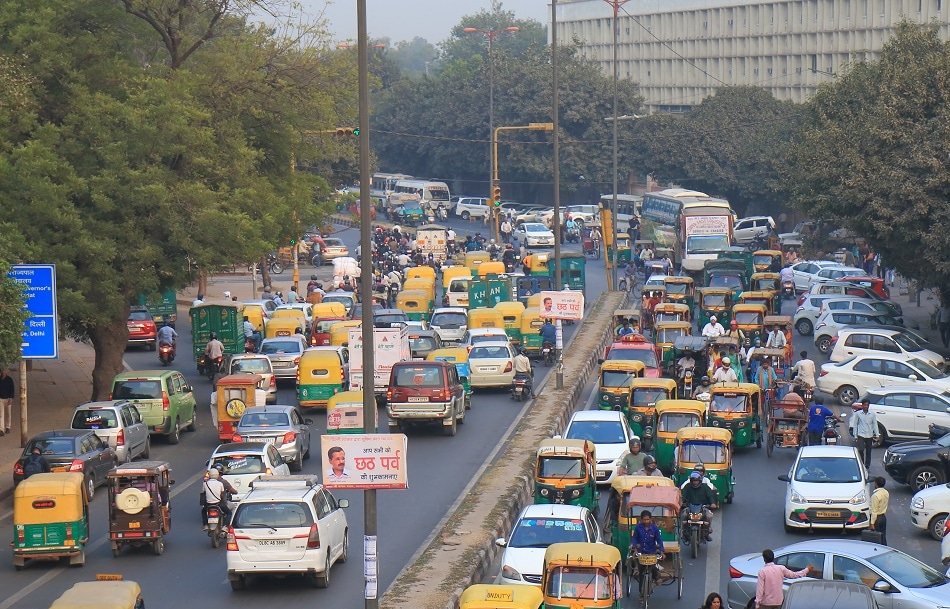
Image Credits: TK Kurikawa/shutterstock.com
Pollution in Delhi has recently led to the declaration of a public health emergency as the air is contaminated at 400 times the amount considered healthy. The Delhi government diverted many flights over the weekend as well as imposing a limitation on how many private vehicles can use the city roads as of yesterday.
The “odd-even” scheme means private vehicles with odd-numbered license plates are permitted to take to the roads on odd dates while even-numbered plates can drive on even dates.
This scheme comes in the wake of the recently declared public health emergency and many of the city’s citizens expressing concern and anguish over the poor air quality, some residents were indicating they may even leave the city.
I feel like moving out as well because I’m young and I’m still on a stage of building up my life and my career.
Divyam Mathur, Delhi resident
Just last year, World Health Organization (WHO) data revealed that 22 of the top 30 most polluted cities in the world are in India. The recent reports from Delhi suggest that the air quality index was measured at over 900 which is significantly higher than the WHO “severe plus” guidelines and an inordinate amount above the level deemed safe which is just 25. Delhi’s chief minister Arvind Kejriwal recently likened the city to a “gas chamber” adding that, “pollution had reached unbearable levels.”
This time of year now brings with it an unwanted tradition because of the mixture of smoke from the celebratory fireworks of Diwali, the burning of crop stubble in nearby regions, and decline in temperature causes a thick smog to become fixed over the Indian capital.
Over one week after Diwali celebrations the city was still cloaked by a residual smog which exhibited little indication of lifting. The resulting air pollution crisis means that the measures being taken to reduce smog levels and increase the quality of the air will likely become more frequent and drastic.
During the two-week long restrictions on private vehicles it is estimated that up to 1.2 million vehicles would be off the roads each day. However, some city residents are skeptical when it comes to the impact the “odd-even” scheme could have.
I don’t think this odd-even scheme will do anything. It’s mostly the stubble burning in the states of Punjab and Haryana which contributes to the pollution, and industrial pollution is also high.
Ajay Jasra, Delhi resident
City officials have been pushing the “odd-even” scheme since 2016, implementing it twice that year and it remains the city government’s preferred method to help combat air pollution. However, some critics are still debating the success of the Aam Aadmi Party-led government’s project. Yet, today’s reports suggest that there has already been a 62 percent drop in PM2.5 (particulate matter) levels due in part to the “odd-even” scheme coupled with higher wind speeds.
However, one persistent threat for Delhi’s air quality is the agricultural practice of stubble burning in the Punjab and Haryana areas. Air pollution tends to peak in Delhi and north Indian states during this time of year because of farmers burning crop residues preparing the land for the subsequent harvest. Thus, if wind speeds slow down, cold temperatures and moisture in the air may see Delhi shrouded in another thick cloak of smog.
Latest data from NASA’s Visible Infrared Imaging Radiometer Suite (VIIRS) shows that there are currently 5,300 active fires of which 90 percent are burning in Punjab.
Last year, some of the measures taken by the authorities in Delhi to combat the toxic air included instructing fire services to douse the city with water sprinkled from high-rise buildings as well as ordering for the covering of construction sites and banning of garbage fires.
Although the Central Pollution Control Board (CPCB) data shows a dip in air pollution the state of emergency is still in effect as authorities and residents continue their efforts to further reduce the harmful PM2.5 levels. For the future of the health of residents in Delhi and those across India, continual action and more stringent emission controls must be put in place to improve air quality and prevent thousands of deaths across the country.
This is not just an issue localized to Delhi as more than 4.2 million people die globally due to exposure to air pollution, with 91% of the world’s population residing in areas that exceed WHO limits. Therefore, authorities and governments across the world must put more policies in place and support investments for cleaner energy, transport, and industry practices.
Disclaimer: The views expressed here are those of the author expressed in their private capacity and do not necessarily represent the views of AZoM.com Limited T/A AZoNetwork the owner and operator of this website. This disclaimer forms part of the Terms and conditions of use of this website.